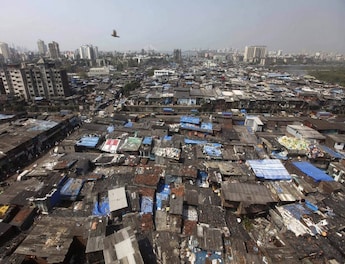In a significant development, a prominent Indian firm has secured a noteworthy contract worth Rs 22 crore from the Adani Group for the implementation of a digital twin mapping project in Dharavi, Asia’s largest slum located in Mumbai. The project aims to leverage advanced technology to create a detailed and accurate digital representation of the sprawling Dharavi settlement.
The chosen firm, with its expertise in digital mapping and urban development, is set to embark on a transformative journey to capture the intricate details of Dharavi. A digital twin, in this context, involves the creation of a virtual replica of the physical environment, encompassing both the geographical layout and socio-economic aspects of the area.

Source:-TOI
This initiative holds immense promise for addressing various challenges within Dharavi, such as inadequate infrastructure, lack of proper sanitation, and limited access to essential services. By employing cutting-edge technology, the digital twin mapping project is poised to offer insights that can inform comprehensive urban planning strategies, facilitating improved living conditions for the residents of Dharavi.
Furthermore, the collaboration between the Indian firm and the Adani Group signifies a proactive approach toward leveraging private sector capabilities for social impact. The infusion of Rs 22 crore into the project underscores the commitment to utilizing innovation and technology for the betterment of marginalized communities.
The digital twin mapping of Dharavi is expected to play a pivotal role in enhancing disaster preparedness, resource allocation, and overall governance in the densely populated settlement. It presents an opportunity to create a model for sustainable urban development that can be replicated in other similar contexts across the country.
As stakeholders eagerly anticipate the outcomes of this ambitious project, the successful implementation of the digital twin mapping in Dharavi could serve as a blueprint for addressing urban challenges on a broader scale. The integration of technology and private-sector expertise in such initiatives underscores the potential for transformative change in India’s urban landscape, fostering inclusive and sustainable development.
Share your views in the comments

